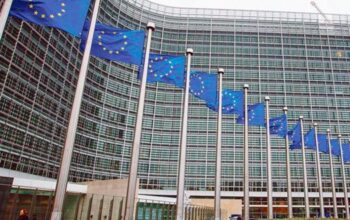Republika Srpska’s Eighth Report to the UN Security Council
Introduction and Executive Summary
Republika Srpska (RS), a party to all of the annexes that comprise the Dayton Accords, respectfully submits this 8th Report to the UN Security Council. The report reviews developments since the 7th Report and presents the RS Government’s views on the principal
issues facing Bosnia and Herzegovina (BiH).
Section I of the report examines the status of BiH’s political development. Between December and May, BiH’s elected leaders made rapid progress toward EU integration by working together in a spirit of compromise. That progress came to a standstill at the end of May when BiH’s two largest Bosniak parties descended into an acrimonious feud. In October, however, the two largest parties in the RS and the largest party in the Federation of Bosnia and Herzegovina (“Federation”) reached several important agreements designed to improve BiH’s economy and reform public institutions. The RS leadership will continue working to forge consensus so that BiH can build on the accomplishments it has already made in 2012. The RS, for example, has developed a proposal—which Dervo Sejdić and Jakob Finci have praised—for implementing the European Court of Human Rights’ Sejdić-Finci decision. The RS is eager to continue working with BiH leaders to bring BiH into compliance with the decision at the earliest possible date. Section I of the report also discusses the RS commitment to help find a solution to the longstanding dispute over state and defense property.
In Section II, the report explains the need to enact reforms to BiH institutions to align them with the Constitution and unleash political and economic progress. It points out some distinct advantages of BiH’s decentralized Dayton system, including the fact that it limits the impact of political paralysis at the BiH level. BiH’s decentralized structure has also allowed the RS to continue making strides in reforming its economy and laying the foundations for lasting prosperity. Unfortunately, decrees by the High Representative have unconstitutionally transferred many competencies from the Entities to the BiH-level agencies. BiH-level institutions are often characterized by inefficiency and abuse of power.
Section III examines the RS’s efforts, through the EU Structured Dialogue on Justice, to reform the BiH judicial system so that it fulfills international standards and conforms to the BiH Constitution. In particular, BiH’s mechanism for the appointment and discipline of judges and prosecutors must be reformed in order for it to function more efficiently and conform to international and European standards. In addition, the Court of BiH needs to be replaced with an institution that meets the requirements of the BiH Constitution and European standards.
Section IV concerns the legacy of BiH’s 1992-1995 conflict. It includes an analysis showing, through statistics and examples, troubling disparities between the BiH judicial system’s treatment of war crimes against Bosniaks and war crimes against Serbs.
Section V of the report focuses on the need to close the Office of the High Representative (OHR), which has long stifled BiH’s political and economic development. Since the RS’s previous report, international support for the High Representative and his self-bestowed “Bonn Powers” has continued to dwindle. Aside from the patent illegality of the Bonn Powers, the High Representative’s role in BiH stunts the normal process of political consensus building that takes place in self-governing democratic states.
Lastly, Section VI explains why—after almost 17 years of peace and stability in BiH—there is no justification for the Security Council to continue acting under Chapter VII of the UN Charter.
The RS hopes this report will assist Security Council members in their deliberations about BiH and help all readers better understand the situation in BiH and the RS’s positions.
Read the full report here.


